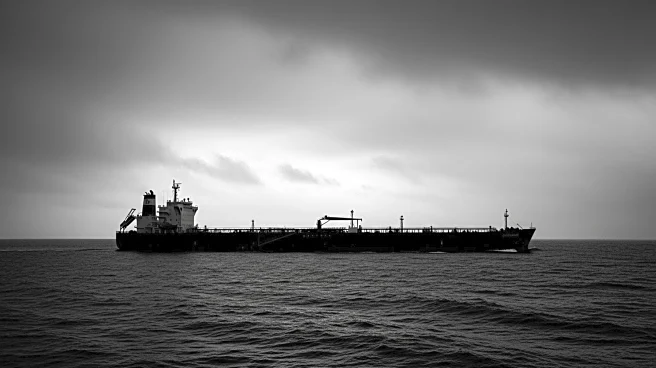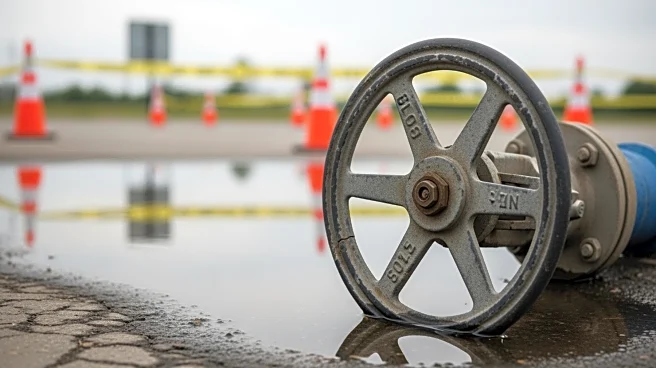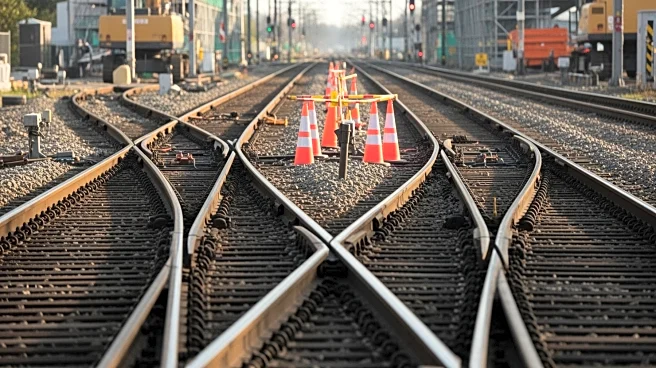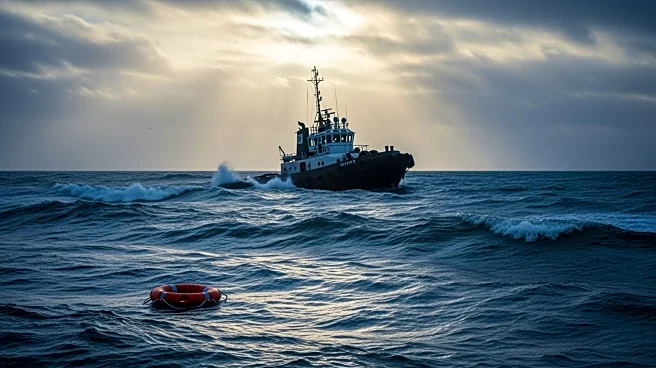What's Happening?
The captain of an oil tanker linked to Russia's 'shadow fleet' is set to face trial in France, accused of failing to cooperate with authorities. The vessel, suspected of transporting crude oil under different flags to evade sanctions, was intercepted by the French navy off the Atlantic coast. The ship, known as the Boracay, was carrying a large oil shipment from Russia to India. French President Emmanuel Macron has highlighted the vessel's connection to Russia's fleet, which allegedly finances a significant portion of Russia's war efforts. The trial is scheduled for February, with the captain facing potential imprisonment and fines.
Why It's Important?
The trial underscores the ongoing geopolitical tensions between Western nations and Russia, particularly concerning sanctions and maritime activities. The interception of the tanker reflects efforts by France and its allies to disrupt Russia's economic activities that support its military operations. This case could set a precedent for handling similar incidents, influencing international maritime law and enforcement strategies. The trial may also impact diplomatic relations, as Russia has accused France of piracy, potentially escalating tensions further.
What's Next?
The upcoming trial in February will be closely watched by international observers, as it may influence future legal actions against vessels suspected of evading sanctions. France's actions could prompt other nations to increase scrutiny of maritime activities linked to Russia, potentially leading to more interceptions and legal challenges. The trial's outcome may affect France-Russia relations, with potential diplomatic repercussions depending on the verdict.
Beyond the Headlines
The case highlights the complexities of enforcing international sanctions and the challenges of identifying and prosecuting vessels involved in illicit activities. It raises questions about the effectiveness of current maritime laws and the need for enhanced cooperation among nations to address such issues. The trial may also spark discussions on the ethical implications of using economic sanctions as a tool for political leverage.








